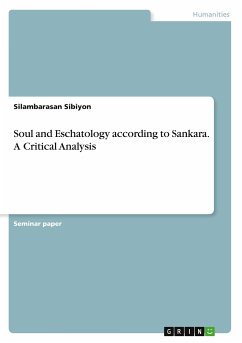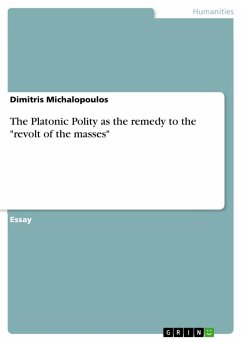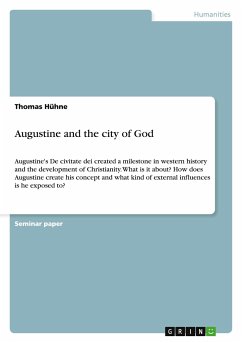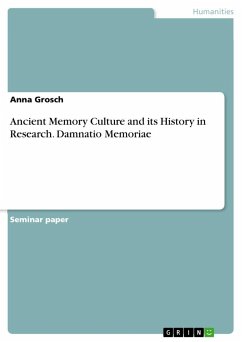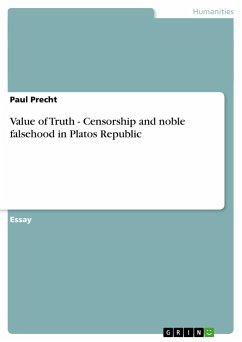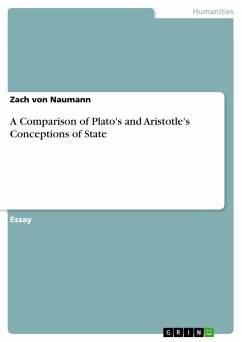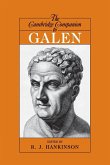Seminar paper from the year 2022 in the subject Philosophy - Philosophy of the Ancient World, , language: English, abstract: This term paper critically examines the concepts of the soul and eschatology as elucidated by Sankara, a renowned philosopher and theologian of ancient India. Grounded in Vedantic philosophy, Sankara's teachings offer profound insights into the nature of the soul, its relationship with ultimate reality (Brahman), and its journey through various stages of existence. Through a meticulous analysis of Sankara's texts, commentaries, and scholarly interpretations, this paper aims to shed light on key aspects such as the nature of the soul, its eternal essence, and its liberation from the cycle of birth and death. The paper begins by providing an overview of Sankara's philosophical framework within Vedanta, emphasizing his Advaita (non-dualistic) perspective. It explores Sankara's understanding of Atman (the individual soul) as an eternal entity that is distinct from the physical body but ultimately identical to Brahman. The concept of Maya (illusion) is also examined in relation to how it affects one's perception of reality and influences eschatological beliefs. Furthermore, this study delves into Sankara's interpretation of eschatology ¿ the study of what happens after death ¿ as outlined in his commentaries on sacred texts like Upanishads and Bhagavad Gita. It investigates his views on karma (action), samsara (cycle of rebirth), moksha (liberation), and their interplay in shaping one's spiritual journey towards self-realization. The critical analysis presented in this paper scrutinizes potential criticisms or challenges to Sankara's teachings on the soul and eschatology. It explores alternative perspectives within Vedanta itself, as well as contrasting viewpoints from other philosophical traditions or religious systems that may challenge or complement his ideas. Ultimately, this research aims to provide a comprehensive and critical understanding of Sankara's teachings on the soul and eschatology, highlighting their significance within the broader context of Indian philosophy and spirituality. By critically evaluating Sankara's ideas, this paper seeks to contribute to ongoing scholarly discourse on these profound metaphysical concepts, inviting further exploration and interpretation.
Hinweis: Dieser Artikel kann nur an eine deutsche Lieferadresse ausgeliefert werden.
Hinweis: Dieser Artikel kann nur an eine deutsche Lieferadresse ausgeliefert werden.

